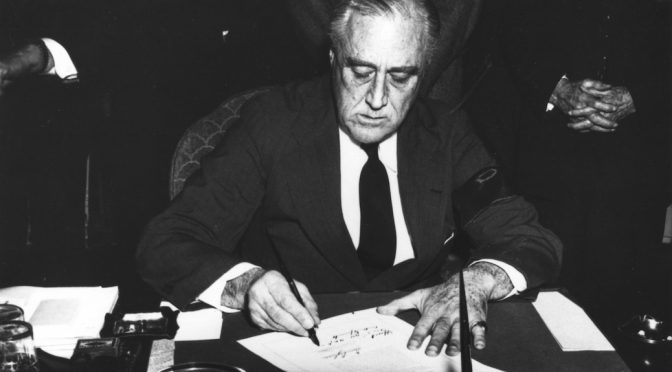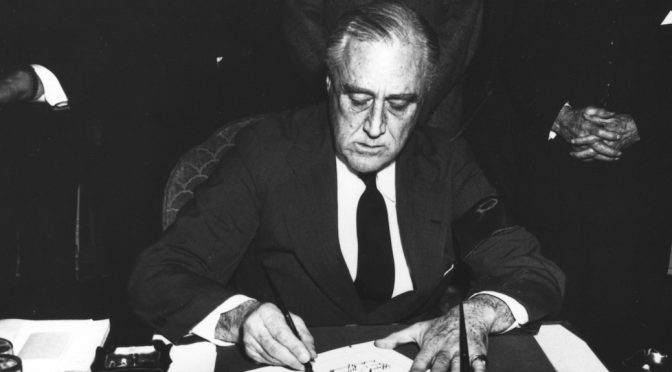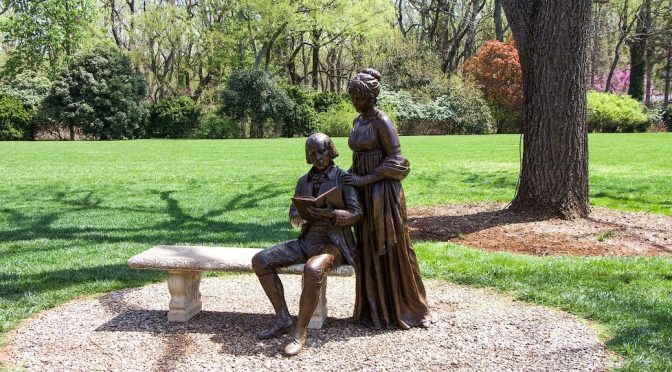Has precedent eroded Congress’s war powers? James Lebovic looks to the various standards of social-scientific inquiry to suggest that an exclusive focus on legal analysis has unnecessarily limited the war powers debate in recent decades. Lebovic finds that even though Congress appears to defer to the President based on war powers precedent, it is often… Continue reading The Selling of a Precedent: The Past as Constraint on Congressional War Powers?
Category: The Constitution
Roosevelt’s “Limited” National Emergency: Crisis Powers in the Emergency Proclamation and Economic Studies of 1939
Shortly after Nazi Germany invaded Poland in 1939, President Franklin D. Roosevelt issued a proclamation of a “limited” national emergency. This proclamation cited no statutory or inherent authority. Alden Fletcher looks to the historical record to suggest Roosevelt’s proclamation was relying on ambiguous statutes that provided for executive power to declare emergencies or take emergency… Continue reading Roosevelt’s “Limited” National Emergency: Crisis Powers in the Emergency Proclamation and Economic Studies of 1939
Reviving Liberal Constitutionalism With Originalism in Emergency Powers Doctrine
Legal scholars have theorized three models of Article II’s Executive Power clause, otherwise known as the Executive Vesting clause: first the cross-reference theory, which points to specific powers under Article II, such as the appointment power; second, the Royal Residuum theory, which interprets Article II as granting wide-ranging powers possessed by the eighteenth-century British Crown;… Continue reading Reviving Liberal Constitutionalism With Originalism in Emergency Powers Doctrine



